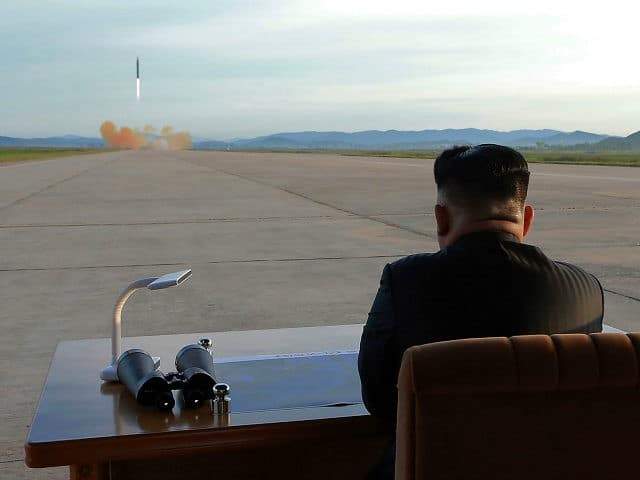Report: China Added 30 Nuclear Warheads to Its Arsenal in 2019

China added 30 warheads to its nuclear arsenal in the past year, making it one of six countries in the world to increase its stockpile since 2019, a report by the Stockholm International Peace Research Institute (SIPRI) revealed on Monday.
According to the report, North Korea, India, Pakistan, Israel, and Britain also boosted their nuclear arsenals in the past year but were distinguished from China in that each increased their stockpiles by fewer than 20 warheads.
“China is in the middle of a significant modernization and expansion of its arsenal, and India and Pakistan are also thought to be increasing the size of their nuclear arsenals,” SIPRI explained in its report.
Despite the increase noted for these six countries’ arsenals, the overall global inventory of nuclear arsenals declined over the past year. According to SIPRI, this is due to the owners of the two largest nuclear stockpiles in the world, the U.S. and Russia, decreasing their number of warheads. The decrease has occurred as the two countries work to dismantle retired warheads and replace them with more modern versions.
“[B]oth the USA and Russia have extensive and expensive programs underway to replace and modernize their nuclear warheads, missile and aircraft delivery systems, and nuclear weapon production facilities,” the report said.
Currently, the U.S. has 1,750 warheads deployed – meaning they are placed on missiles or located on military bases with operational forces. In addition, the country has about 4,050 combined reserve and retired warheads; the retired warheads will eventually be dismantled. Similarly, Russia’s deployed warheads stand at 1,570, with 4,805 reserve or retired warheads counted.
According to the report, at the beginning of 2020, nine states – the U.S., Russia, Britain, France, China, India, Pakistan, Israel, and North Korea – had a combined estimated total of 13,400 nuclear weapons; of this total, 3,720 warheads were deployed with operational forces. Of the deployed warheads, about 1,800 were maintained in a state of “high operational alert.”
Outside of nuclear armament, SIPRI’s report noted the emergence of new threats to global security such as chemical and biological weapons. Additionally, SIPRI warned that a future international arms race could be carried out in space. The report cited increasing indications since 2017 that the U.S. considers outer space “a domain of war,” adding that other countries, including Japan, India, and France, have followed suit by announcing they would designate special military units for space.In May, reports indicated that top U.S. national security officials had discussed conducting America’s first nuclear test since 1992. The proposed test was reportedly in response to recent indications that Russia and China have been conducting low-yield nuclear tests of their own.
Photo: STR/AFP/Getty Images, File











